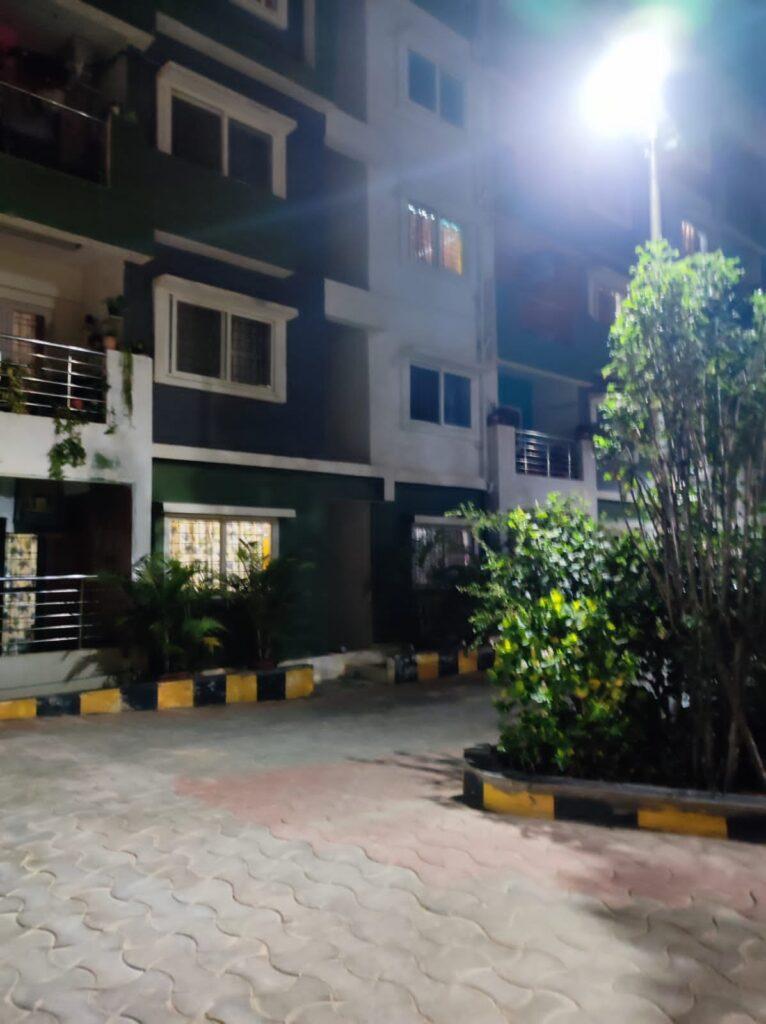THE FUTURE OF STREET LIGHTING: SOLAR STREET LIGHTS REVOLUTION
Solar street lights are leading the way in revolutionizing street lighting systems across the globe. With their numerous advantages and advancements in solar technology, these innovative lights are shaping the future of street lighting. From energy efficiency and environmental sustainability to cost savings and enhanced functionality, solar street lights are transforming the way we illuminate our streets. In this article, we will explore the future of street lighting and the significant role that solar street lights play in this revolution.
TABLE OF CONTENTS
- Introduction: Paving the Way to a Sustainable Future
- Energy Efficiency: Maximizing Solar Power
- Smart Lighting Control Systems
- Integration of IoT and Connectivity
- Enhanced Safety and Security Features
- Aesthetically Pleasing Designs
- Integration of Renewable Energy Sources
- Cost Savings and Return on Investment
- Environmental Sustainability: Reducing Carbon Footprint
- Conclusion


1. INTRODUCTION: PAVING THE WAY TO A SUSTAINABLE FUTURE
As we move towards a more sustainable future, the adoption of renewable energy sources becomes paramount. Solar street lights are at the forefront of this transition, providing a greener and more efficient solution for street lighting. These lights harness the power of the sun to illuminate our streets, offering a sustainable alternative to traditional lighting systems.
2. ENERGY EFFICIENCY: MAXIMIZING SOLAR POWER
Solar street lights continue to advance in energy efficiency, maximizing the utilization of solar power. With improved solar panels and energy storage systems, these lights can capture and store more energy during the day, ensuring reliable and consistent lighting throughout the night. The efficient use of solar power minimizes energy waste and reduces reliance on traditional grid electricity.
3. SMART LIGHTING CONTROL SYSTEMS
The future of street lighting lies in smart lighting control systems. Solar street lights are increasingly equipped with intelligent controls that allow for precise management of lighting levels. These systems can adjust brightness based on ambient light conditions or motion detection, optimizing energy usage. Smart lighting control systems ensure efficient lighting and contribute to cost savings.
4. INTEGRATION OF IOT AND CONNECTIVITY
Solar street lights are embracing the Internet of Things (IoT) and connectivity to enhance functionality and performance. Integration with IoT technology allows for remote monitoring, real-time data collection, and predictive maintenance. This connectivity enables better management and control of street lights, ensuring their optimal operation and minimizing downtime.
5. ENHANCED SAFETY AND SECURITY FEATURES
The future of street lighting includes enhanced safety and security features. Solar street lights are incorporating advanced technologies such as motion sensors, surveillance cameras, and emergency alert systems. These features improve visibility, deter crime, and ensure the safety of pedestrians and motorists. The integration of safety and security features makes solar street lights an integral part of smart and safe cities.

6. AESTHETICALLY PLEASING DESIGNS
Solar street lights are not just functional; they are also aesthetically pleasing. The future of street lighting involves designs that seamlessly blend with the urban landscape and architectural elements. Solar street lights come in various styles, sizes, and colors, allowing them to complement the surroundings and enhance the visual appeal of streets and public spaces.
7. INTEGRATION OF RENEWABLE ENERGY SOURCES
Solar street lights are paving the way for the integration of multiple renewable energy sources. These lights can be combined with wind turbines or integrated into existing energy grids to create hybrid lighting systems. This integration further reduces reliance on fossil fuels, promotes renewable energy generation, and ensures a sustainable and resilient street lighting infrastructure.
8. COST SAVINGS AND RETURN ON INVESTMENT
The futureof solar street lights includes even greater cost savings and return on investment. As the technology continues to evolve and become more affordable, the initial investment in solar street lights is offset by long-term savings in energy costs and reduced maintenance expenses. The cost-effectiveness of solar street lights makes them an attractive choice for municipalities, businesses, and homeowners alike.
9. ENVIRONMENTAL SUSTAINABILITY: REDUCING CARBON FOOTPRINT
Solar street lights are instrumental in reducing the carbon footprint of street lighting. By harnessing the clean and renewable energy of the sun, these lights eliminate the need for traditional energy sources that contribute to greenhouse gas emissions. The widespread adoption of solar street lights promotes environmental sustainability and supports the global efforts to combat climate change.
CONCLUSION
The future of street lighting is being shaped by the rapid advancements in solar street lights. These lights offer energy efficiency, smart lighting control systems, enhanced safety features, and aesthetically pleasing designs. Integration with IoT and connectivity enables remote monitoring and management, while the integration of renewable energy sources ensures a sustainable lighting infrastructure. Solar street lights not only contribute to cost savings but also reduce carbon emissions and promote environmental sustainability.
Embrace the solar street lights revolution and be a part of the brighter and greener future of street lighting.
If you wish to get More Details and Information about solar street Light Click Here to view our blog
Comments
Post a Comment